I spent a week with empowered Gen Z students and young professionals working to change the world. Here’s a summary of what emerged from our time together—moments of collaboration, impactful discussions, and the lasting impact we achieved.
From June 7th to 9th, The Farmlink Project’s second cohort of FIELD Fellows embarked on a journey to Washington, D.C. for the Gen Z Food & Hunger Summit. Co-hosted by the Congressional Hunger Center, Food Systems Collaborative, The Farmlink Project, and more, this summit brought together 50 young advocates from across the country to learn about food security issues and effective advocacy strategies and to meet with members of Congress.
Purpose and 101 of the Summit
The Gen Z Food & Hunger Summit was established not just to address the alarming rates of food insecurity faced by Generation Z but also to empower the generation with the advocacy tools necessary to effect change in their communities. Gen Z households are twice as likely to experience hunger as other generations. This issue is even more pronounced among college students. Specifically, nearly 39% of students at two-year institutions and 29% of students at four-year institutions experienced food insecurity. For all of us attendees, this summit felt innately personal. We wanted change in our communities.
The summit's purpose is twofold: to raise awareness about these critical issues and to equip young leaders with the skills and knowledge needed to advocate for policy changes. In workshops on storytelling, policy analysis, and advocacy strategies, I and the other participants learned how to effectively communicate their experiences and push for legislative reforms.
By the numbers, the 2024 Gen Z Food & Hunger Summit brought together 51 campus food security leaders from across the U.S., representing 31 states. Attendees engaged in 39 meetings with lawmakers to discuss hunger on college campuses, with appearances from 5 Members of Congress. The summit harnessed the collective power of 12 partner organizations, building the next generation of leaders in food security across the nation.
Summit partners included the Farmlink Project, Bonner Program, Bread for the World, Food Recovery Network, Student Basic Needs Coalition, and Swipe Out Hunger. Each organization brought an innovative approach to tackling food insecurity, leveraging their unique expertise to empower Gen Z advocates and drive meaningful change in communities across the nation. The summit was made possible by the generous support of Shipt and the Sodexo Stop Hunger Foundation.
Two Whole Days of ACTION
Day One
Our Monday kicked off bright and early. For many of the Farmlink fellows, it was their first time in the nation’s capital, so we aimed to make the most of it.
We began the day with an incredible opportunity—a private tour of the White House, courtesy of a Farmlink-affiliated friend. Fellows explored the historic Eisenhower Executive Office Building and got a unique glimpse of the White House grounds.
Following our White House visit, Fellows were given a tour of the Capitol by none other than Farmlink Alum Grace Dereemer! Grace was previously a Food Program Fellow with Farmlink, helping source and redirect surplus produce.
Finally, we arrived at the Congressional Hunger Center, where we began our formal summit.
The day was filled with sessions on food insecurity, advocacy strategies, and preparing for meetings with lawmakers. We learned to use innovation, collaboration, and storytelling to drive change, gaining practical tools for impactful advocacy on Capitol Hill. Closing out the session, we heard from Farmlink’s very own Head of Policy, Sophia Adelle and Food Systems Collaborative Co-Founder, Niyeti Shah, on what Food Insecurity Advocacy looks like–all in preparation for Day 2: direct advocacy with Congressmen and Congresswomen for two separate bills.

Day Two
Fellows headed to the Capitol at 7:30 AM. Fellows and other Gen Z Summit Participants were placed into groups of 4-5, assigned 3-4 Congressional meetings, and given 2 separate bills to advocate for. Armed with knowledge, passion, and the drive to make a difference, they prepared to advocate for two critical pieces of legislation aimed at tackling food waste and hunger.
The first was the Food Date and Labeling Act (FDLA), a proposed bipartisan bill designed to regulate food dates and labels to eliminate confusion and waste over ‘Best By’ verbiage.
The second was the Opportunities to Address College Hunger Act (OACHA), a proposed bipartisan bill introduced to reduce hunger among college students by streamlining the process for accessing federal nutrition assistance programs, including SNAP. This legislation aims to ensure that all eligible students are aware of their eligibility and can succeed academically without the burden of hunger.
As a Farmlink FIELD Fellow working at Flynn Creek Farm, a regenerative organic farm in southern Wisconsin, I couldn’t have been more excited to dive into direct advocacy, especially in Washington, D.C. During my summer immersion at Flynn Creek, I dove head first into the day-to-day work of regenerative farming—from rotational grazing to managing compost and biochar systems—gaining a deep understanding of sustainable practices and their impact on the land. As I worked the land, it became clear that these practices were just one part of a much larger puzzle. There’s something truly invigorating about stepping into the heart of policymaking, knowing that the work we’re doing on the farm connects to the larger fight for food security and sustainability. My group members and I advocated for FDLA.
Our meetings started with Congresswoman Robyn Kelly’s (IL-2) office, a special moment for me as I was her constituent. My group members and I spoke about the economic and social impact of food waste, personal anecdotes and tidbits about our lives and how we relate to food. Most of all, we highlighted the potential of regulated food date labeling in reducing waste and food insecurity.
I had the chance to share my first-hand experiences from my FIELD immersion, highlighting the deep care, emotion, and foresight that go into growing food. From planning months in advance to managing the constant stress of ensuring crops thrive, it's an emotional and powerful cycle—from inception to harvest to feeding people. Witnessing the full process makes it all the more heartbreaking to see food wasted, especially over something as simple as a date label. Progress on standardizing food dates may seem small, but it can significantly reduce waste, save money, and honor the hard work of farmers across the country.
We met with two more representatives: Frank Pallone (NJ-6) and Eleanor Holmes Norton (DC). Additionally, Congressman Jim McGovern (MA-2) and Arkansas Senator John Boozman, Leader of the Committee on Agriculture, Nutrition, and Forestry, spoke to us about the dual objective of fighting hunger and supporting farmers and communities.
The day was exhausting and exhilarating as we navigated multiple Congressional meetings and shared our stories. Connecting the work I do at Flynn Creek Farm with tangible policy change reminded me that even the smallest actions, like improving food date labels, can have a far-reaching impact. It was a powerful reminder that advocacy, when rooted in real-world experience, has the potential to drive lasting change for farmers, consumers, and the future of our food system.

So what’s next?
Two weeks later, I received an email with follow-up news from our meeting with Congresswoman Eleanor Holmes Norton’s (DC) office.
“I wanted to share that Eleanor Holmes Norton just co-sponsored the Food Date Labeling Act because of your meeting last week. Congratulations on this win!”
Additionally, fellow Farmlinker Divya Saikumar received a similar email meeting with Congressman Mark DeSaulnier’s (CA-10)office.
“It was great to meet with you all! Happy to let you know that my boss has agreed to cosponsor the bill, which should be reflected in congress.gov in the next several days. Thanks again for your advocacy!”
These emails were a powerful reminder of the real impact that our advocacy efforts can have. As we wrapped up our summit in DC, I was filled with a sense of gratitude. The relationships made, the impact we witnessed, and the knowledge that our voices were heard left me feeling hopeful for the future. As Gen Z, we have the power to drive real change.
Our generation, often underestimated, is showing up—whether in the fields, on campuses, or on Capitol Hill—proving that our voices matter. The relationships built, the impact of our advocacy, and the progress made on legislation all reinforce the idea that when Gen Z takes action, we can shape a more sustainable and equitable future. As we returned to our work, we knew this was just the beginning of what our generation could achieve in the fight against food waste and hunger.
.png)
< Back
I spent a week with empowered Gen Z students and young professionals working to change the world. Here’s a summary of what emerged from our time together—moments of collaboration, impactful discussions, and the lasting impact we achieved.
From June 7th to 9th, The Farmlink Project’s second cohort of FIELD Fellows embarked on a journey to Washington, D.C. for the Gen Z Food & Hunger Summit. Co-hosted by the Congressional Hunger Center, Food Systems Collaborative, The Farmlink Project, and more, this summit brought together 50 young advocates from across the country to learn about food security issues and effective advocacy strategies and to meet with members of Congress.
Purpose and 101 of the Summit
The Gen Z Food & Hunger Summit was established not just to address the alarming rates of food insecurity faced by Generation Z but also to empower the generation with the advocacy tools necessary to effect change in their communities. Gen Z households are twice as likely to experience hunger as other generations. This issue is even more pronounced among college students. Specifically, nearly 39% of students at two-year institutions and 29% of students at four-year institutions experienced food insecurity. For all of us attendees, this summit felt innately personal. We wanted change in our communities.
The summit's purpose is twofold: to raise awareness about these critical issues and to equip young leaders with the skills and knowledge needed to advocate for policy changes. In workshops on storytelling, policy analysis, and advocacy strategies, I and the other participants learned how to effectively communicate their experiences and push for legislative reforms.
By the numbers, the 2024 Gen Z Food & Hunger Summit brought together 51 campus food security leaders from across the U.S., representing 31 states. Attendees engaged in 39 meetings with lawmakers to discuss hunger on college campuses, with appearances from 5 Members of Congress. The summit harnessed the collective power of 12 partner organizations, building the next generation of leaders in food security across the nation.
Summit partners included the Farmlink Project, Bonner Program, Bread for the World, Food Recovery Network, Student Basic Needs Coalition, and Swipe Out Hunger. Each organization brought an innovative approach to tackling food insecurity, leveraging their unique expertise to empower Gen Z advocates and drive meaningful change in communities across the nation. The summit was made possible by the generous support of Shipt and the Sodexo Stop Hunger Foundation.
Two Whole Days of ACTION
Day One
Our Monday kicked off bright and early. For many of the Farmlink fellows, it was their first time in the nation’s capital, so we aimed to make the most of it.
We began the day with an incredible opportunity—a private tour of the White House, courtesy of a Farmlink-affiliated friend. Fellows explored the historic Eisenhower Executive Office Building and got a unique glimpse of the White House grounds.
Following our White House visit, Fellows were given a tour of the Capitol by none other than Farmlink Alum Grace Dereemer! Grace was previously a Food Program Fellow with Farmlink, helping source and redirect surplus produce.
Finally, we arrived at the Congressional Hunger Center, where we began our formal summit.
The day was filled with sessions on food insecurity, advocacy strategies, and preparing for meetings with lawmakers. We learned to use innovation, collaboration, and storytelling to drive change, gaining practical tools for impactful advocacy on Capitol Hill. Closing out the session, we heard from Farmlink’s very own Head of Policy, Sophia Adelle and Food Systems Collaborative Co-Founder, Niyeti Shah, on what Food Insecurity Advocacy looks like–all in preparation for Day 2: direct advocacy with Congressmen and Congresswomen for two separate bills.

Day Two
Fellows headed to the Capitol at 7:30 AM. Fellows and other Gen Z Summit Participants were placed into groups of 4-5, assigned 3-4 Congressional meetings, and given 2 separate bills to advocate for. Armed with knowledge, passion, and the drive to make a difference, they prepared to advocate for two critical pieces of legislation aimed at tackling food waste and hunger.
The first was the Food Date and Labeling Act (FDLA), a proposed bipartisan bill designed to regulate food dates and labels to eliminate confusion and waste over ‘Best By’ verbiage.
The second was the Opportunities to Address College Hunger Act (OACHA), a proposed bipartisan bill introduced to reduce hunger among college students by streamlining the process for accessing federal nutrition assistance programs, including SNAP. This legislation aims to ensure that all eligible students are aware of their eligibility and can succeed academically without the burden of hunger.
As a Farmlink FIELD Fellow working at Flynn Creek Farm, a regenerative organic farm in southern Wisconsin, I couldn’t have been more excited to dive into direct advocacy, especially in Washington, D.C. During my summer immersion at Flynn Creek, I dove head first into the day-to-day work of regenerative farming—from rotational grazing to managing compost and biochar systems—gaining a deep understanding of sustainable practices and their impact on the land. As I worked the land, it became clear that these practices were just one part of a much larger puzzle. There’s something truly invigorating about stepping into the heart of policymaking, knowing that the work we’re doing on the farm connects to the larger fight for food security and sustainability. My group members and I advocated for FDLA.
Our meetings started with Congresswoman Robyn Kelly’s (IL-2) office, a special moment for me as I was her constituent. My group members and I spoke about the economic and social impact of food waste, personal anecdotes and tidbits about our lives and how we relate to food. Most of all, we highlighted the potential of regulated food date labeling in reducing waste and food insecurity.
I had the chance to share my first-hand experiences from my FIELD immersion, highlighting the deep care, emotion, and foresight that go into growing food. From planning months in advance to managing the constant stress of ensuring crops thrive, it's an emotional and powerful cycle—from inception to harvest to feeding people. Witnessing the full process makes it all the more heartbreaking to see food wasted, especially over something as simple as a date label. Progress on standardizing food dates may seem small, but it can significantly reduce waste, save money, and honor the hard work of farmers across the country.
We met with two more representatives: Frank Pallone (NJ-6) and Eleanor Holmes Norton (DC). Additionally, Congressman Jim McGovern (MA-2) and Arkansas Senator John Boozman, Leader of the Committee on Agriculture, Nutrition, and Forestry, spoke to us about the dual objective of fighting hunger and supporting farmers and communities.
The day was exhausting and exhilarating as we navigated multiple Congressional meetings and shared our stories. Connecting the work I do at Flynn Creek Farm with tangible policy change reminded me that even the smallest actions, like improving food date labels, can have a far-reaching impact. It was a powerful reminder that advocacy, when rooted in real-world experience, has the potential to drive lasting change for farmers, consumers, and the future of our food system.

So what’s next?
Two weeks later, I received an email with follow-up news from our meeting with Congresswoman Eleanor Holmes Norton’s (DC) office.
“I wanted to share that Eleanor Holmes Norton just co-sponsored the Food Date Labeling Act because of your meeting last week. Congratulations on this win!”
Additionally, fellow Farmlinker Divya Saikumar received a similar email meeting with Congressman Mark DeSaulnier’s (CA-10)office.
“It was great to meet with you all! Happy to let you know that my boss has agreed to cosponsor the bill, which should be reflected in congress.gov in the next several days. Thanks again for your advocacy!”
These emails were a powerful reminder of the real impact that our advocacy efforts can have. As we wrapped up our summit in DC, I was filled with a sense of gratitude. The relationships made, the impact we witnessed, and the knowledge that our voices were heard left me feeling hopeful for the future. As Gen Z, we have the power to drive real change.
Our generation, often underestimated, is showing up—whether in the fields, on campuses, or on Capitol Hill—proving that our voices matter. The relationships built, the impact of our advocacy, and the progress made on legislation all reinforce the idea that when Gen Z takes action, we can shape a more sustainable and equitable future. As we returned to our work, we knew this was just the beginning of what our generation could achieve in the fight against food waste and hunger.
.png)
Empowering Gen Z to Revolutionize our Food System: Farmlink FIELD Fellows in DC
Washington, DC
I spent a week with empowered Gen Z students and young professionals working to change the world. Here’s a summary of what emerged from our time together—moments of collaboration, impactful discussions, and the lasting impact we achieved.
From June 7th to 9th, The Farmlink Project’s second cohort of FIELD Fellows embarked on a journey to Washington, D.C. for the Gen Z Food & Hunger Summit. Co-hosted by the Congressional Hunger Center, Food Systems Collaborative, The Farmlink Project, and more, this summit brought together 50 young advocates from across the country to learn about food security issues and effective advocacy strategies and to meet with members of Congress.
Purpose and 101 of the Summit
The Gen Z Food & Hunger Summit was established not just to address the alarming rates of food insecurity faced by Generation Z but also to empower the generation with the advocacy tools necessary to effect change in their communities. Gen Z households are twice as likely to experience hunger as other generations. This issue is even more pronounced among college students. Specifically, nearly 39% of students at two-year institutions and 29% of students at four-year institutions experienced food insecurity. For all of us attendees, this summit felt innately personal. We wanted change in our communities.
The summit's purpose is twofold: to raise awareness about these critical issues and to equip young leaders with the skills and knowledge needed to advocate for policy changes. In workshops on storytelling, policy analysis, and advocacy strategies, I and the other participants learned how to effectively communicate their experiences and push for legislative reforms.
By the numbers, the 2024 Gen Z Food & Hunger Summit brought together 51 campus food security leaders from across the U.S., representing 31 states. Attendees engaged in 39 meetings with lawmakers to discuss hunger on college campuses, with appearances from 5 Members of Congress. The summit harnessed the collective power of 12 partner organizations, building the next generation of leaders in food security across the nation.
Summit partners included the Farmlink Project, Bonner Program, Bread for the World, Food Recovery Network, Student Basic Needs Coalition, and Swipe Out Hunger. Each organization brought an innovative approach to tackling food insecurity, leveraging their unique expertise to empower Gen Z advocates and drive meaningful change in communities across the nation. The summit was made possible by the generous support of Shipt and the Sodexo Stop Hunger Foundation.
Two Whole Days of ACTION
Day One
Our Monday kicked off bright and early. For many of the Farmlink fellows, it was their first time in the nation’s capital, so we aimed to make the most of it.
We began the day with an incredible opportunity—a private tour of the White House, courtesy of a Farmlink-affiliated friend. Fellows explored the historic Eisenhower Executive Office Building and got a unique glimpse of the White House grounds.
Following our White House visit, Fellows were given a tour of the Capitol by none other than Farmlink Alum Grace Dereemer! Grace was previously a Food Program Fellow with Farmlink, helping source and redirect surplus produce.
Finally, we arrived at the Congressional Hunger Center, where we began our formal summit.
The day was filled with sessions on food insecurity, advocacy strategies, and preparing for meetings with lawmakers. We learned to use innovation, collaboration, and storytelling to drive change, gaining practical tools for impactful advocacy on Capitol Hill. Closing out the session, we heard from Farmlink’s very own Head of Policy, Sophia Adelle and Food Systems Collaborative Co-Founder, Niyeti Shah, on what Food Insecurity Advocacy looks like–all in preparation for Day 2: direct advocacy with Congressmen and Congresswomen for two separate bills.

Day Two
Fellows headed to the Capitol at 7:30 AM. Fellows and other Gen Z Summit Participants were placed into groups of 4-5, assigned 3-4 Congressional meetings, and given 2 separate bills to advocate for. Armed with knowledge, passion, and the drive to make a difference, they prepared to advocate for two critical pieces of legislation aimed at tackling food waste and hunger.
The first was the Food Date and Labeling Act (FDLA), a proposed bipartisan bill designed to regulate food dates and labels to eliminate confusion and waste over ‘Best By’ verbiage.
The second was the Opportunities to Address College Hunger Act (OACHA), a proposed bipartisan bill introduced to reduce hunger among college students by streamlining the process for accessing federal nutrition assistance programs, including SNAP. This legislation aims to ensure that all eligible students are aware of their eligibility and can succeed academically without the burden of hunger.
As a Farmlink FIELD Fellow working at Flynn Creek Farm, a regenerative organic farm in southern Wisconsin, I couldn’t have been more excited to dive into direct advocacy, especially in Washington, D.C. During my summer immersion at Flynn Creek, I dove head first into the day-to-day work of regenerative farming—from rotational grazing to managing compost and biochar systems—gaining a deep understanding of sustainable practices and their impact on the land. As I worked the land, it became clear that these practices were just one part of a much larger puzzle. There’s something truly invigorating about stepping into the heart of policymaking, knowing that the work we’re doing on the farm connects to the larger fight for food security and sustainability. My group members and I advocated for FDLA.
Our meetings started with Congresswoman Robyn Kelly’s (IL-2) office, a special moment for me as I was her constituent. My group members and I spoke about the economic and social impact of food waste, personal anecdotes and tidbits about our lives and how we relate to food. Most of all, we highlighted the potential of regulated food date labeling in reducing waste and food insecurity.
I had the chance to share my first-hand experiences from my FIELD immersion, highlighting the deep care, emotion, and foresight that go into growing food. From planning months in advance to managing the constant stress of ensuring crops thrive, it's an emotional and powerful cycle—from inception to harvest to feeding people. Witnessing the full process makes it all the more heartbreaking to see food wasted, especially over something as simple as a date label. Progress on standardizing food dates may seem small, but it can significantly reduce waste, save money, and honor the hard work of farmers across the country.
We met with two more representatives: Frank Pallone (NJ-6) and Eleanor Holmes Norton (DC). Additionally, Congressman Jim McGovern (MA-2) and Arkansas Senator John Boozman, Leader of the Committee on Agriculture, Nutrition, and Forestry, spoke to us about the dual objective of fighting hunger and supporting farmers and communities.
The day was exhausting and exhilarating as we navigated multiple Congressional meetings and shared our stories. Connecting the work I do at Flynn Creek Farm with tangible policy change reminded me that even the smallest actions, like improving food date labels, can have a far-reaching impact. It was a powerful reminder that advocacy, when rooted in real-world experience, has the potential to drive lasting change for farmers, consumers, and the future of our food system.

So what’s next?
Two weeks later, I received an email with follow-up news from our meeting with Congresswoman Eleanor Holmes Norton’s (DC) office.
“I wanted to share that Eleanor Holmes Norton just co-sponsored the Food Date Labeling Act because of your meeting last week. Congratulations on this win!”
Additionally, fellow Farmlinker Divya Saikumar received a similar email meeting with Congressman Mark DeSaulnier’s (CA-10)office.
“It was great to meet with you all! Happy to let you know that my boss has agreed to cosponsor the bill, which should be reflected in congress.gov in the next several days. Thanks again for your advocacy!”
These emails were a powerful reminder of the real impact that our advocacy efforts can have. As we wrapped up our summit in DC, I was filled with a sense of gratitude. The relationships made, the impact we witnessed, and the knowledge that our voices were heard left me feeling hopeful for the future. As Gen Z, we have the power to drive real change.
Our generation, often underestimated, is showing up—whether in the fields, on campuses, or on Capitol Hill—proving that our voices matter. The relationships built, the impact of our advocacy, and the progress made on legislation all reinforce the idea that when Gen Z takes action, we can shape a more sustainable and equitable future. As we returned to our work, we knew this was just the beginning of what our generation could achieve in the fight against food waste and hunger.
.png)
.png)




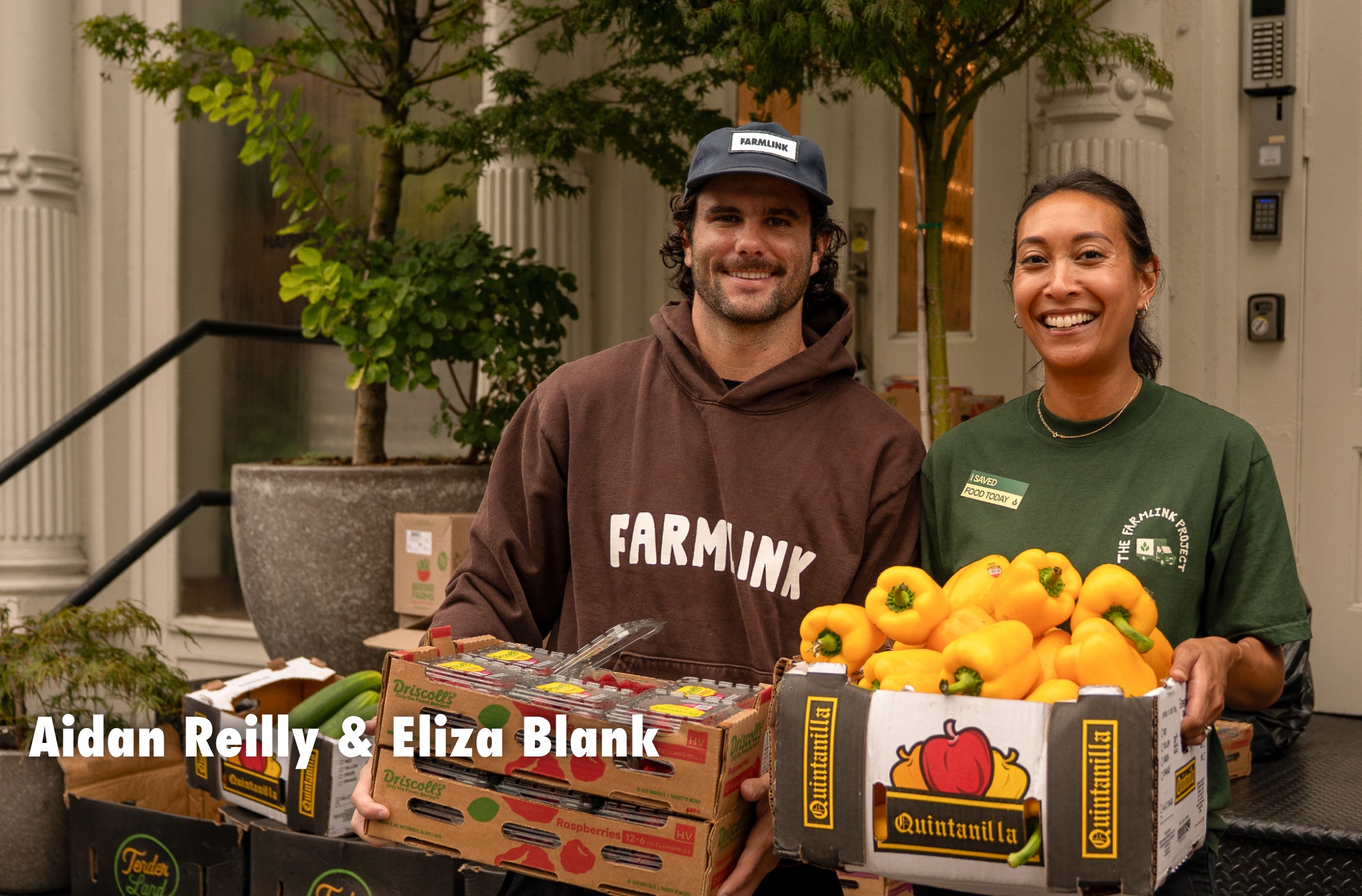
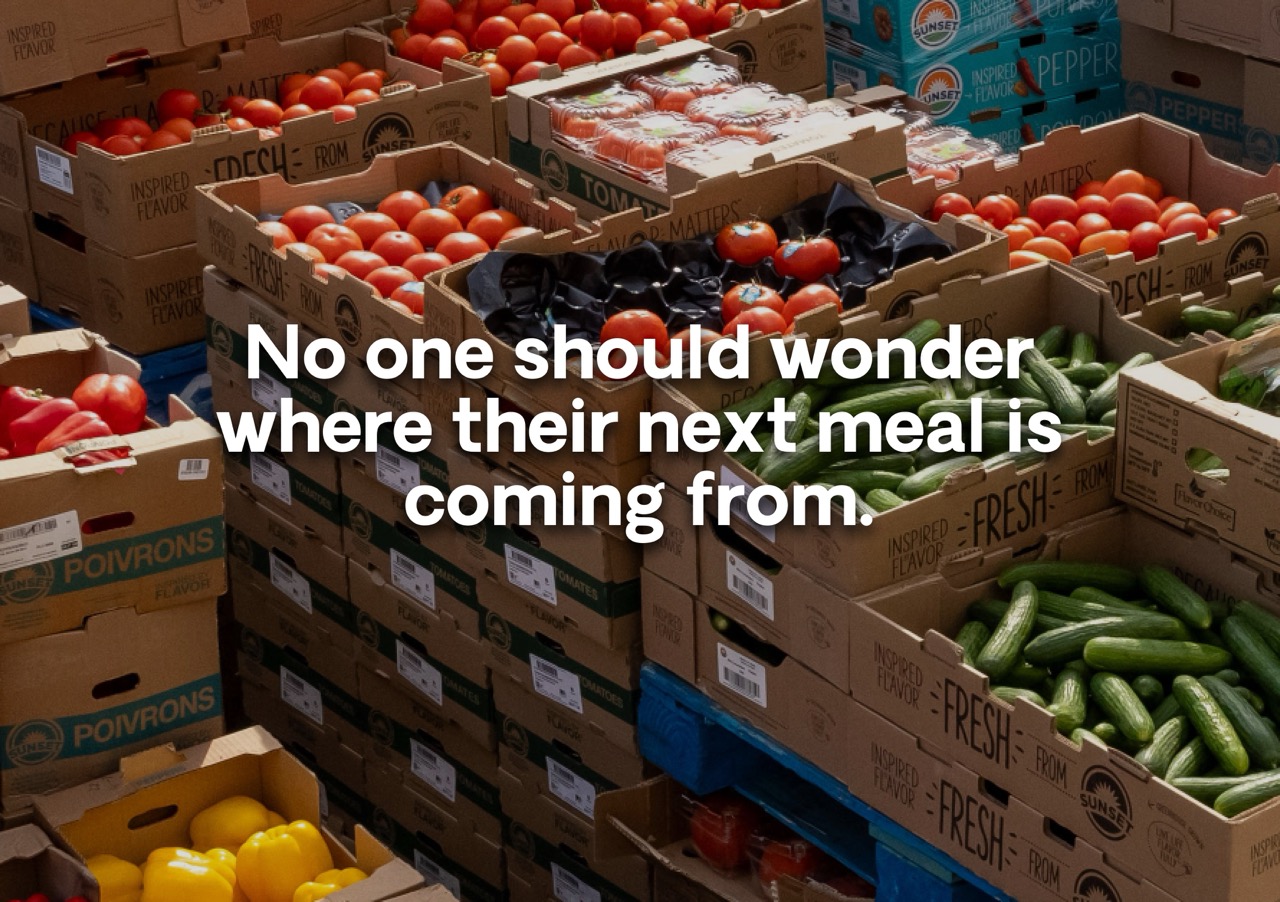
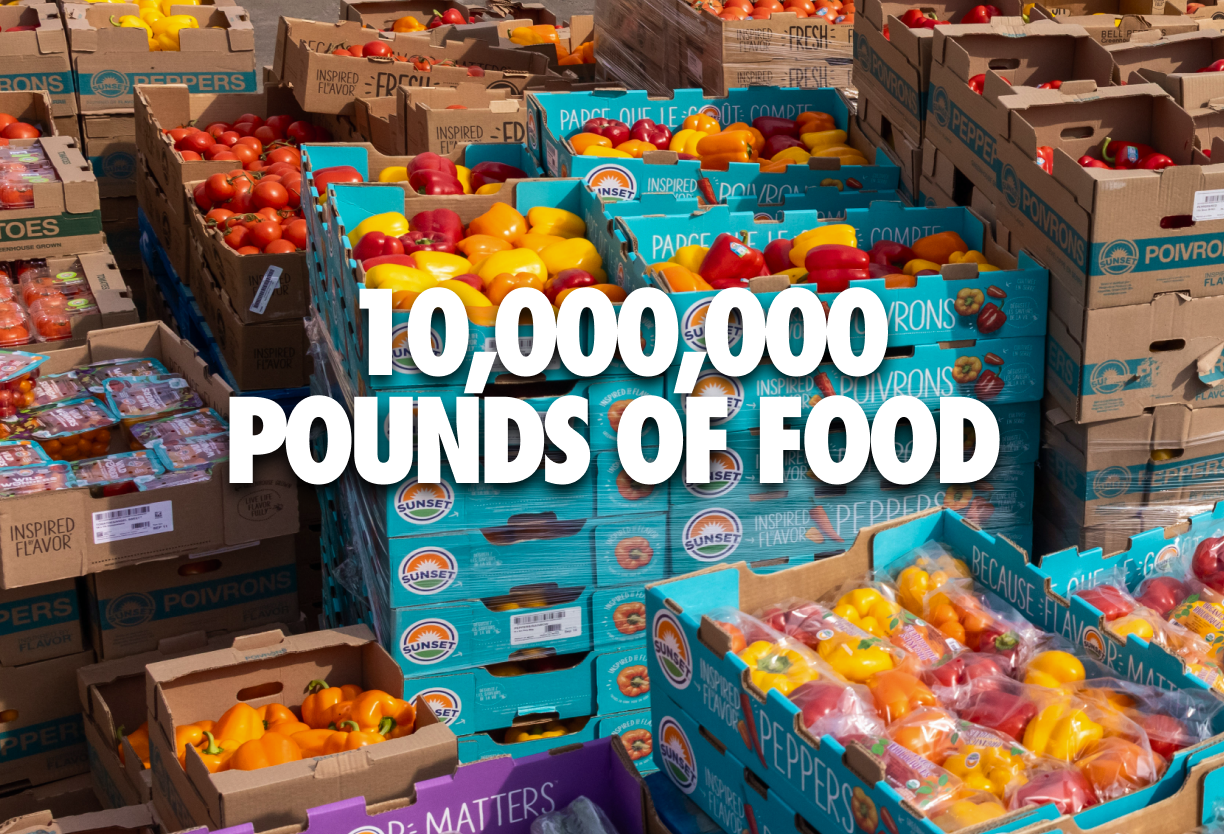

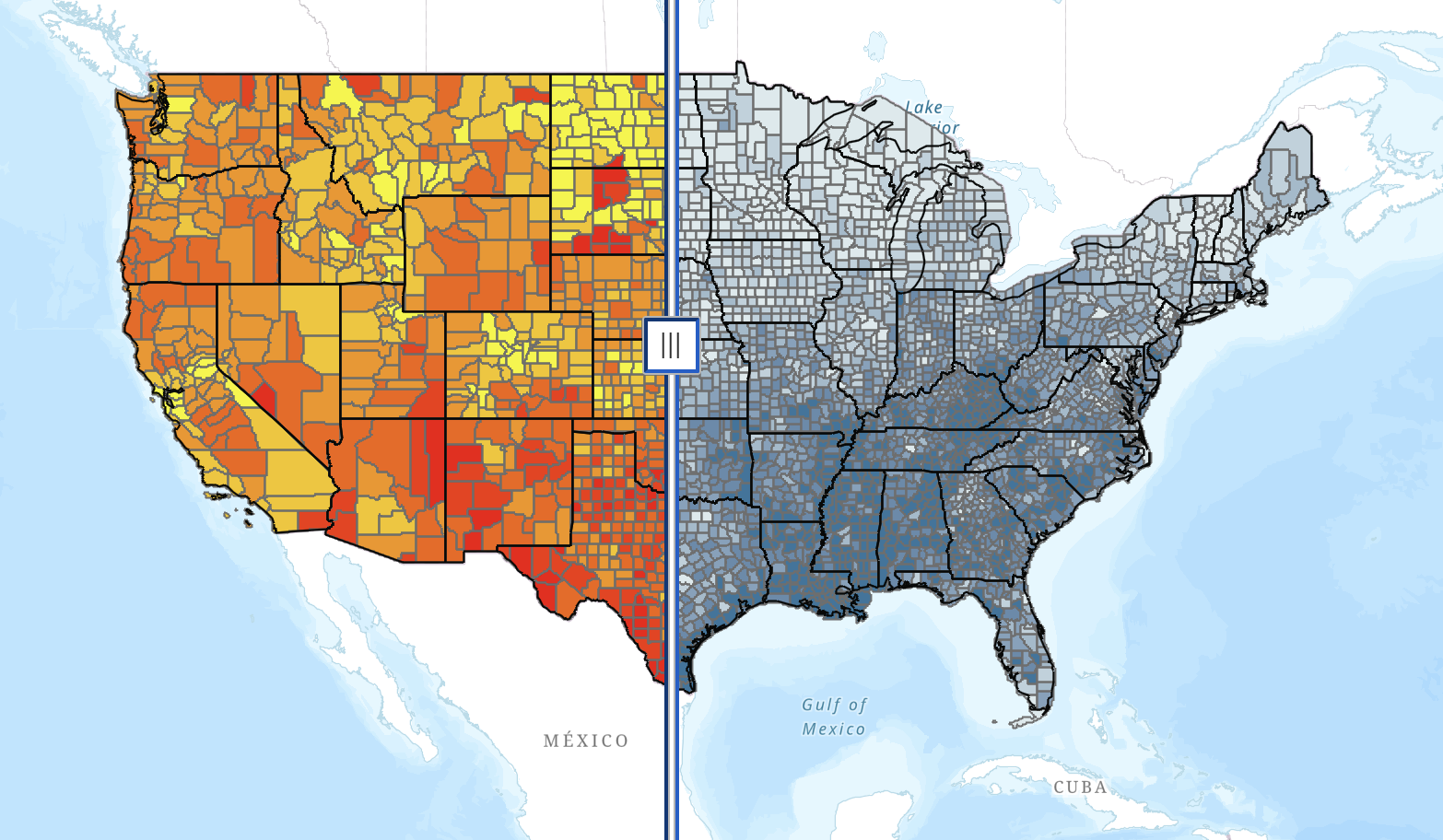
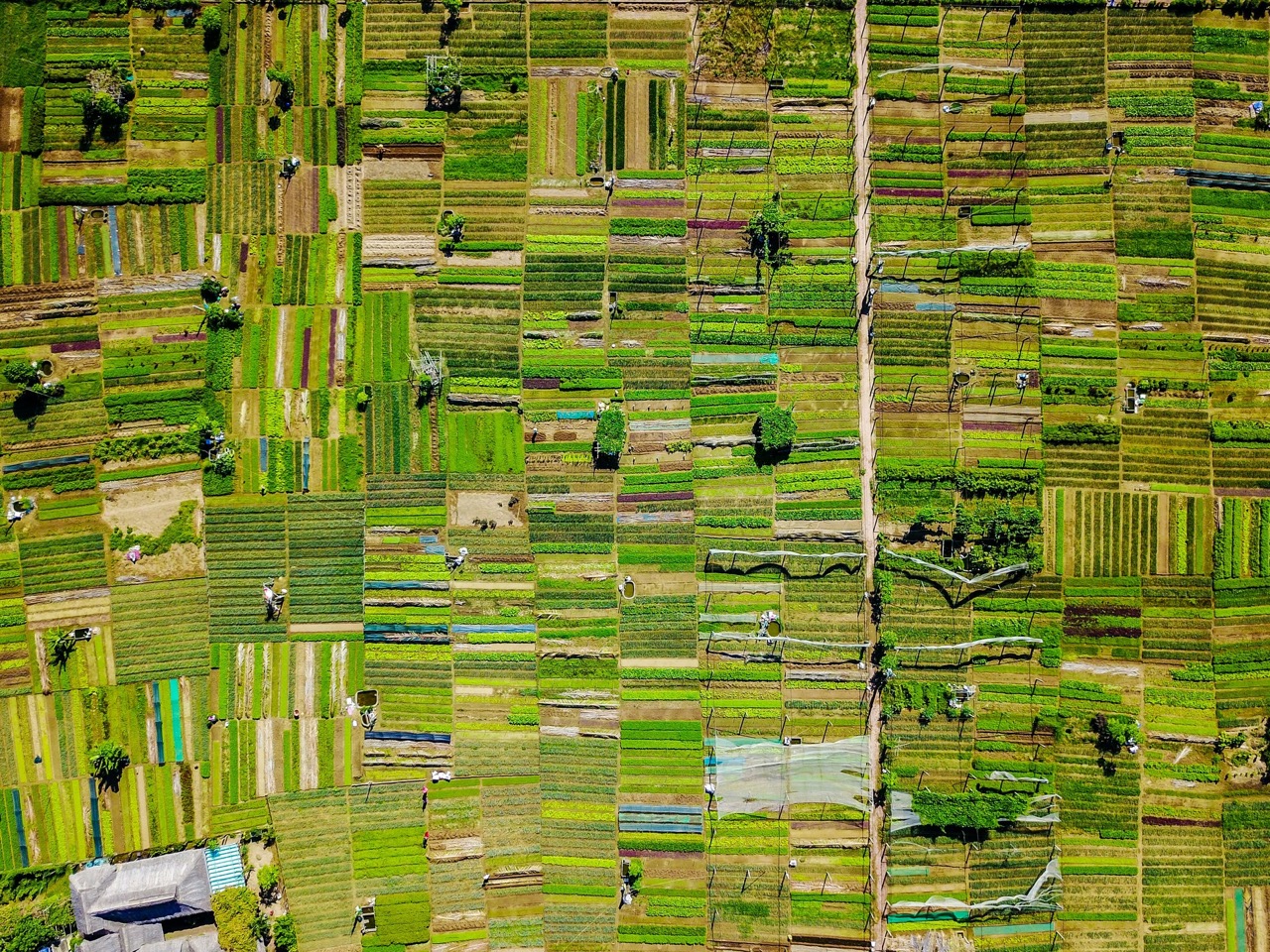
.svg)
.svg)
.svg)